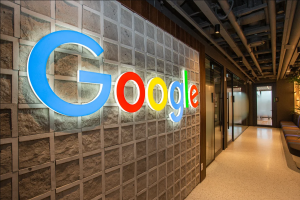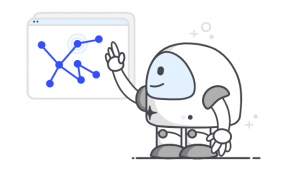How Big Data Helps African Youth Shape the Future of Their Continent: Q&A with Appfrica Founder Jon Gosier
![]() As a data scientist, social entrepreneur, and founder of data analysis startup, MetaLayer, Jon Gosier aims to make complex technological knowledge, once reserved for specialists, accessible to a broad audience. MetaLayer’s simple interface offers “Drag and Drop Data Science” to organizations and individuals like journalists, data analysts and NGO researchers who may lack staff or funding for costly data analysis. Gosier is used to big innovative thinking as the founder of Appfrica and organizer of the annual Apps4Africa competition, which has given away approximately $100,000 in cash prizes to African developers addressing local problems.
As a data scientist, social entrepreneur, and founder of data analysis startup, MetaLayer, Jon Gosier aims to make complex technological knowledge, once reserved for specialists, accessible to a broad audience. MetaLayer’s simple interface offers “Drag and Drop Data Science” to organizations and individuals like journalists, data analysts and NGO researchers who may lack staff or funding for costly data analysis. Gosier is used to big innovative thinking as the founder of Appfrica and organizer of the annual Apps4Africa competition, which has given away approximately $100,000 in cash prizes to African developers addressing local problems.
In this interview, Gosier discusses MetaLayer’s origins and how the company realizes its motto of “making the world’s information easier to understand, visualize, and share;” how big data can be leveraged to address NGO and government concerns across Africa; and why tech communities here, in the United States, and everywhere, should be concerned with technological innovation across Africa. Gosier also shares his thoughts on the future of data science and personal thoughts on his inspirations, favorite African literature, and an imaginary acceptance speech.
How did MetaLayer begin?
I began thinking of what MetaLayer would be while I was working at Ushahidi. There I was working on a project to validate real-time information. That’s a challenging problem, but it touched upon several areas that were more interesting to me. Things like how to make it possible to interpret large datasets (of any kind) quickly, how to relate abstract findings in those datasets to people visually, and how to make working with unstructured data as easy as working with structured data. These specific problems weren’t being addressed by many tools in the market, so when I left Ushahidi I decided to focus on solving them.
![]()
![]()
See the entire Innovative Big Data Series with Kathryn Buford on Pinterest and Springpad!
.
Who are MetaLayer’s target customers? Can you give us a use-case example of how a customer could harness MetaLayer for optimal results?
MetaLayer makes it possible to work with public data sets (for example: social media streams) and private data sets (for example: a company’s advertising campaign spending) in one easy-to-use environment. In short, drag and drop data science.
The problem we’re solving is one that happens frequently, where a team of executives or analysts are waiting on their IT staff to run complex algorithms and normalize disparate data sets. Our product makes this possible for anyone, regardless of expertise.
Use cases might include monitoring social media conversations for emerging trends or patterns and then overlaying the results on your business’ recent spending documents. One of our customers was (in seconds) able to detect not only how the public felt about recent product launch: but exactly what they said that may have influenced others, where that person is located, and which dollars the company spent to reach that person.
All of this is possible without MetaLayer, but in the process they’ll need a lot of different tools – a social media monitoring platform, a programmer to run algorithms over the collected data, a something like Excel or Tableau for visualization, and the time and talent necessary to pull it all together. The difference with us, is that this entire process happens in one product that we’ve made so accessible anyone can use it, without needing to know how to program.
Making technology more widely available and useful to people has been key to many of your projects. How did this social focus come to be so important to you?
I’m a self-taught programmer, designer and technologist. My biggest frustration growing up was seeing few resources for people who wanted to teach themselves about coding. There were books available through stores or libraries, but they were expensive and always made everything take so much longer.
So the two things I didn’t have a lot of – time and money – one had to have simply to learn.
The Internet gave me the ability to learn things, in-depth, that no one was willing or able to tech me at public school. I really learned to value self-instruction and intellectual curiosity. I ultimately came to appreciate tools and technologies that are accessible to people, regardless of level of expertise.
As the founder of Appfrica, you also organize the annual Apps4Africa competition, which encourages African software developers to create solutions to local problems. What’s one of the most awe-inspiring projects you’ve seen an Apps4Africa participant create?
For me, every entrant is equally awe-inspiring. You have to remember that these are some of the toughest parts of the world, and we’re dealing with people who have accomplished a great deal in regards to educating themselves, learning to program, and building prototypes with no funding available – often before they ever even hear of Apps4Africa!
We’ve given away around $100,000 in cash prizes to some of Africa’s most inspiring individuals who are using technology to solve societal problems. So it’s humbling to be able to invest in their ideas and support their hard work.
But, to answer your question, the winner of the first Apps4Africa in 2010 was Su Kahumbu who was working on a technology called iCow. iCow was one of the most unassuming apps, perhaps. It allows farmers to know when best to impregnate and milk their cattle. But the impact is incredible. Su recently shared with me that iCow users (farmers in sub-Saharan Africa) are improving their yields of approximately 20 to 50 liters per animal, per day, resulting in a range of $200 to $500 of new income for the individual farmers.
In a part of the world where the average person lives on the equivalent of $2 a day, that kind of increase in yield and revenue is life changing.
Do you think big data has a particular promise to Africa? Can you give an example of how you think it might be harnessed to address a particular problem in a specific region, country or set of countries in Africa?
![]() Absolutely. The ability to harness public awareness from mobile and social web channels is invaluable.
Absolutely. The ability to harness public awareness from mobile and social web channels is invaluable.
Recently, MetaLayer has been contacted by governments who have massive quantities of data, but lacked the internal capacity to harness it all. This is because they don’t have the resources to hire entire departments of data scientists and they certainly can’t retrain their entire workforces to be statisticians. So they are interested in using MetaLayer to visualize these data sets, spot trends, and monitor social media channels, among other things.
One large NGO contacted us a few months ago and they were interested in using sentiment analysis to measure local public reaction to their program work in-country. For them products as flexible as ours were essential because they wanted to not only use the tool internally, but they wanted to leave it in the hands of the local governments as well, giving them new insight into how the public responded to their initiatives too.
NGOs, Governments and the Intelligence communities have all approached us with similar needs.
Why is it important that tech experts in the United States stay informed about tech innovations and opportunities across Africa?
One never knows where a world changing idea or technology is going to emerge from. If in 2007 you told someone in the Intelligence, first responder, or GIS, community that a technology platform developed by a group of Kenyan bloggers was going to be one of the most valuable resources deployed during the tsunami in Japan – they wouldn’t have believed you. Then in 2008 my former colleagues launched Ushahidi and those industries were caught off guard.
Disruption comes from the places where you aren’t looking. It blindsides you. So it’s important to be aware of innovation in places where you least expect it because none of us can predict where the next big things is going to come from.
We always end this segment with: How would you like to see the field of data science evolve over the next few years?
I’d like to see data science follow a path similar to that of the math, science and programming. Meaning I’d like to see it taught more, but I’d also like to see more accessible tools and products made available to those with less expertise.
![]()
JON GOSIER, DATA DEMOCRATIZER
.
Inspirational figure you’d like to meet?
Neil Degrasse-Tyson is a personal hero. I happen to love physics and astronomy, so I’d love to have a conversation with him, one on one, where I geek out on questions about the universe, string-theory, and the cosmos.
Favorite book by an African author?
Well, I suppose mandatory Afro-phile reading is “Things Fall Apart” by Chinua Achebe. But I’m also keen on upcoming African writers like Chimamanda Adichie.
Let’s say you won an award honoring your innovative projects. In the spirit of the Webby awards’ 5-word speaking limit, what would your 5-word acceptance speech be?
Data is as Data Does…I have no idea what that means.
A message from John Furrier, co-founder of SiliconANGLE:
Your vote of support is important to us and it helps us keep the content FREE.
One click below supports our mission to provide free, deep, and relevant content.
Join our community on YouTube
Join the community that includes more than 15,000 #CubeAlumni experts, including Amazon.com CEO Andy Jassy, Dell Technologies founder and CEO Michael Dell, Intel CEO Pat Gelsinger, and many more luminaries and experts.
THANK YOU













